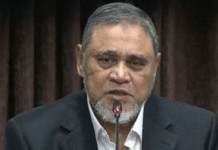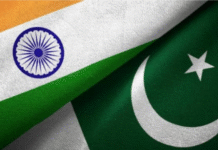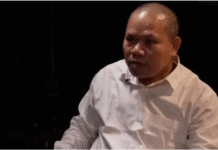For the marginalised char people

Belal Hossain, a 50-year-old schoolteacher living in a remote char of Gaibandha, has been suffering chest pain on the left side for over a year now. Because the nearest hospital is still miles away and takes half a day to reach, he chose not to endure the pain for as long as he could.
Recently, he heard from his neighbours of a floating hospital that travels around like a bohemian and provides necessary medical support to the people like him living in the char areas. Without hesitation, Belal went there and got his long-awaited check-up done. He was diagnosed with heart disease.

The Emirates Friendship Hospital (EFH) a local non-government organisation, with the support of Emirates Airlines Foundation, established the modern floating hospital in 2008 inside a ship. The hospital gives free-of-cost medical support to impoverished people living on chars.
Rekha Begum, 35, of Kaziarchar went to the same hospital with gynaecological problem. The medical assistants gave her a medical card and confirmation that she will be given treatment by experts.
Both patients were asked to keep in touch with the hospital as they would have to come back within a few days for their treatments. A team of specialised doctors would be providing them with treatment within three or four days, said Ajit Gharami, a medical assistant at the EFH.

The EFH has expert physicians of different renowned hospitals visiting on certain dates to provide necessary treatment to critical patients. Other patients are given medical tests and medicines by the hospital authorities themselves.
This correspondent saw that the hospital even arranged eye-operation camps for around 40 patients, in which specialist doctors from Dhaka’s renowned hospitals conducted operations on cataract patients.
More than a hundred people of all ages were seen in one of the hospital camps, which was temporarily set up for patients. Some of them were returning home after taking treatment others were waiting for their turns.
Md Yousuf Mia, Senior Administrator of EFH said, “We cover around 200km of char areas in Gaibandha and Kurigram under a medical chain and manage the floating hospitals at around 35 points of the riverbanks round the year.”
Ahmed Toufiqur Rahman, deputy general manager of Friendship Bangladesh, said, “We are now trying to increase the number of hospitals.”
Speaking to The Daily Star, some patients said the free-of-cost treatment they were getting was excellent and doubted whether such good services were given even in exchange for money anywhere else in Bangladesh.
Sona Uddin, a local shopkeeper, said people living on the chars suffered from many diseases due to the unavailability of a hospital and the inability to go elsewhere for treatment as they are poor. “But this ship has brought us relief.”
Dr Ikbal Ahmed Khan, medical officer of EFH, said, “The Friendship hospital serves on average 55,000 patients per year. We provide round-the-clock service and have no days off.”
Apart from the hospitals, Friendship Bangladesh is also providing primary and secondary level education facilities in their well-established schools to children from impoverished families.
Deputy GM of Friendship Toufiqur said, “In char areas, students often drop out of school due to poverty and the lack of educational facilities. That is why we are trying to provide free and quality education to them.”
They pre-record lessons given by prominent teachers in Dhaka. These videos are then projected in the classrooms, he added.
Currently, they are providing education to around 5,000 students in 79 schools in different chars across the country.









